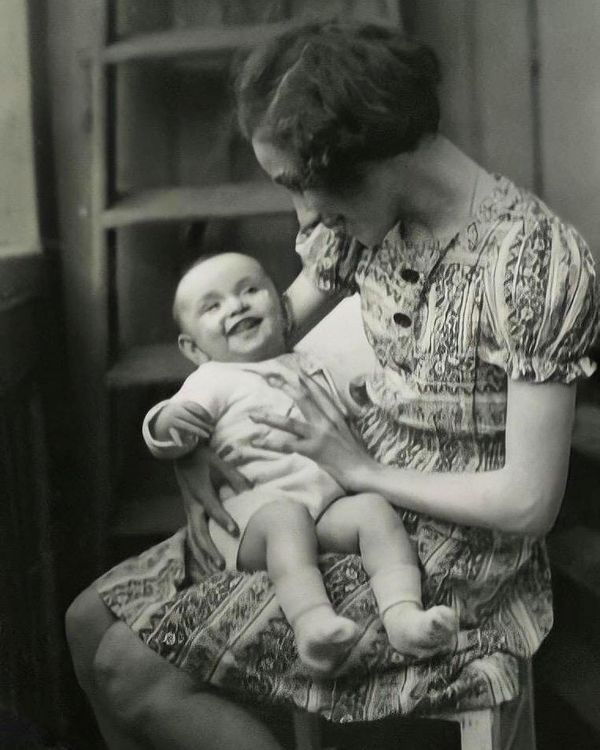Gabi Goslar, born Rachel Gabriele Ida Goslar on October 25, 1940, in Amsterdam, Netherlands, represents the resilience of the human spirit amid the horrific backdrop of the Holocaust. A figure of strength, Gabi’s life narrative intertwines with significant historical events, showcasing not only survival but also the enduring power of friendship.
Early Life and Family Background
Raised in a Jewish family, she was the daughter of Ruth Judith Klee and Hans Yitzkhak Goslar, both of whom were German-Jewish refugees. Her father had held a prominent position as the deputy minister for domestic affairs in Berlin, showcasing the family’s previously stable life. The chaos of World War II, however, shattered this sense of security.
Tragedy struck early in Gabi’s life, with the death of her mother during childbirth in 1942 and the subsequent loss of her grandfather in 1943. These family losses were compounded by the traumatic experiences that would soon follow.

Source: https://www.facebook.com/
The Impact of War
In 1943, as the Nazi regime intensified its persecution of Jews, her father acquired Paraguayan passports, which protected the family temporarily from deportation. However, they were eventually taken to Westerbork, a transit camp in the Netherlands.
During this time, Gabi Goslar suffered from severe ear infections and spent significant portions hospitalized. On February 15, 1944, the family was moved to Bergen-Belsen, a concentration camp known for its brutal conditions.
In Bergen-Belsen, she faced dire hardships. Despite living in a relatively better section reserved for those on the Palestinian list, the horrors of the camp were ever-present.
With her sister Hannah becoming ill, Gabi was cared for by Mrs. Abrahams, a mother of seven, showcasing the innate human compassion that persisted even in harsh circumstances.
Liberation and Life After the War
Tragedy continued as Hans Goslar passed away on February 25, 1945. By the time of liberation in April of that year, Gabi and her sister were the sole survivors of the Goslar family. Hannah’s poor health led to hospitalization, and she found refuge at a children’s home in Laren.
Otto Frank, the father of Anne Frank, became a pivotal figure in Gabi Goslar’s post-war life, taking on a fatherly role. Hannah and her family were eventually sent to live with their uncle in Geneva, Switzerland. In 1949, at just nine years old, she migrated to Israel, marking another chapter in the journey towards healing and rebuilding life.
A Bright Future and Lasting Friendship
In Israel, Gabi Goslar married a man with the last name Mozes, settling in Petach Tikvah. Though opting for a life away from the public eye, she made a poignant return to the spotlight during the unveiling of her parents’ memorial stumbling blocks near their former home in Germany. This act was both a tribute to family and an acknowledgment of the collective memory of those lost in the Holocaust.
The bond with Anne Frank remains a significant aspect of her life story. Childhood friends whose lives took drastically different paths due to the war, their enduring connection exemplifies the importance of friendship amidst adversity.
Advocacy and Memoir
Gabi Goslar’s journey through the aftermath of the Holocaust led her to become an advocate for peace, understanding, and tolerance. In 2010, she published a memoir titled I Have to Tell Someone, sharing harrowing experiences and insights gleaned from such an unimaginable past. The narrative not only serves as a personal account but also stands as a voice for those silenced by the Holocaust.
Through advocacy work, she has made a significant impact, emphasizing the necessity for compassion, acceptance, and the confrontation of prejudice. Her life story resonates as a reminder of the enduring strength of the human spirit and the importance of maintaining hope in the face of adversity.
Legacy of Gabi Goslar
Gabi Goslar’s life reflects themes of resilience, loss, and friendship, representing countless others who shared similar experiences during one of humanity’s darkest chapters. The legacy left by the journey speaks to the necessity of remembrance and the advocacy for a world free from discrimination and hate.
Today, the story continues to inspire individuals, showing that even amidst despair, hope and resilience can prevail. Her presence serves as a beacon of light, fostering an environment of hope and remembrance that transcends time, reminding future generations of the power of survival against all odds.

Welcome to the world of Chef Gary! Meet Chef Gary, a culinary maestro whose journey from Indonesia to the United States has been nothing short of extraordinary. Immigrating in the early 2000s, Chef Gary began his culinary career as a Sushi Chef at renowned establishments such as Japonais Restaurant in Chicago, followed by stints at Benihana and Ginza in Indiana.
With a passion for perfection and a dedication to his craft, Chef Gary’s career blossomed as he made his mark in the Sunshine State, serving as the Head Sushi Chef at Modern Asian restaurants in Palm Beach. However, his two-year sojourn in New Delhi, India, shaped his culinary prowess, propelling him to the prestigious role of Executive Chef at Nehru Place – Benihana.
